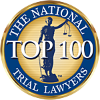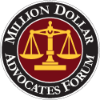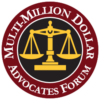Whistleblowers Reporting Medicaid & Medicare Fraud in North & South Carolina
When fraudsters target Medicare and Medicaid, it puts tens of millions of Americans at risk. Can you expose fraud, get a reward, and make a difference?
When fraudsters target Medicare and Medicaid, it puts tens of millions of Americans at risk. Can you expose fraud, get a reward, and make a difference?
Medicare, Medicaid, and other federally funded health insurance programs lose billions of dollars a year to fraud by unscrupulous individuals, including healthcare providers.
Civic-minded whistleblowers like you can help hold healthcare industry fraudsters accountable and return stolen taxpayer funds to the government by bringing a case under the False Claims Act (FCA).
Whistleblower FCA lawsuits play a critical role in upholding the integrity of Medicare and Medicaid, which are crucial safety nets for more than 100 million Americans.
If you suspect Medicare or Medicaid fraud, we can help you blow the whistle and try to expose it in North or South Carolina. We know how to guide and protect you, so contact us today at 1-888-292-8852 for a free, confidential discussion to help you decide how to proceed.

Whistleblowers in the industry, including doctors, nurses, and contractors, initiate most of the qui tam lawsuits that expose Medicare and Medicaid fraud.
Medicare and Medicaid fraud can be divided into three main categories as follows:
Whistleblowers help expose Medicare and Medicaid billing scams. In addition to recovering and restoring funds that belong to all of us back to these federal healthcare programs, brave whistleblowers also protect Medicare and Medicaid patients from improper and harmful treatment.
We have pursued whistleblower claims for these and other types of Medicare and Medicaid billing fraud:
In federal healthcare programs, such as Medicare and Medicaid, it is unlawful to reward those who refer business to you and to accept rewards for referrals. These rewards are bribes and are called kickbacks.
Under federal law, whistleblowers and their attorneys are empowered to combat kickback practices resulting in false claims to Medicare or Medicaid and to use the False Claims Act to try to hold the entities involved with the kickbacks accountable.
Unfortunately, fraud against Medicare and Medicaid takes many different forms in addition to billing fraud and kickbacks. If you believe you have information about any of the following types of schemes, contact us today to discuss a path forward for potentially blowing the whistle on those fraudsters:
To report suspected Medicare or Medicaid fraud (and possibly receive a reward for your bravery), you can “blow the whistle” on the provider or company by working with an experienced whistleblower attorney who can:
Many people — especially those who witnessed the fraud at work — are afraid of losing their jobs or worse.
Fortunately, there are laws to try to make these concerns non-issues. Your attorney can use False Claims Act whistleblower protections to help protect you, including:
Watch our video to learn more!
Can I tell others I am a potential whistleblower?
A whistleblower lawsuit must be filed “under seal.” That is, it does not immediately become public while the government investigates the allegations. The whistleblower should also avoid sharing the information before the court lifts the seal, and you’ll want to keep the information to yourself anyway. Whoever you share your suspicions with could report you to HR – or claim a potential whistleblower reward instead of you.
Why should I be a healthcare whistleblower?
There are many valid reasons to become a whistleblower, including your own personal sense of justice and desire to hold fraudsters accountable for their actions. You may also be entitled to up to 30% of any recovery in a successful case, which can be a life-changing amount.
Healthcare whistleblowers are especially needed. According to the Department of Justice, whistleblower settlements and judgements “restore funds to federal programs such as Medicare, Medicaid, and TRICARE…but just as important, in many cases, enforcement of the False Claims Act also protects patients from medically unnecessary or potentially harmful actions.”
Why choose us as your Medicaid/Medicare fraud whistleblower lawyers
Our attorneys have decades of combined experience, and we are led by former White House-appointed attorney Bill Nettles, who recovered billions of dollars in fraud against the government during his tenure.1,4
Our mission is to hold fraudsters accountable, and our client success stories prove our dedication to seeking justice.1,4
We appreciate the struggle you may be facing. That’s why, under our You-First Policy, your interests come first, always, including using the full power of the law to try to protect you from any employer retaliation.






If you’re wondering if it’s a good idea to speak with a whistleblower lawyer about what you know, let us set the record straight.
"*" indicates required fields